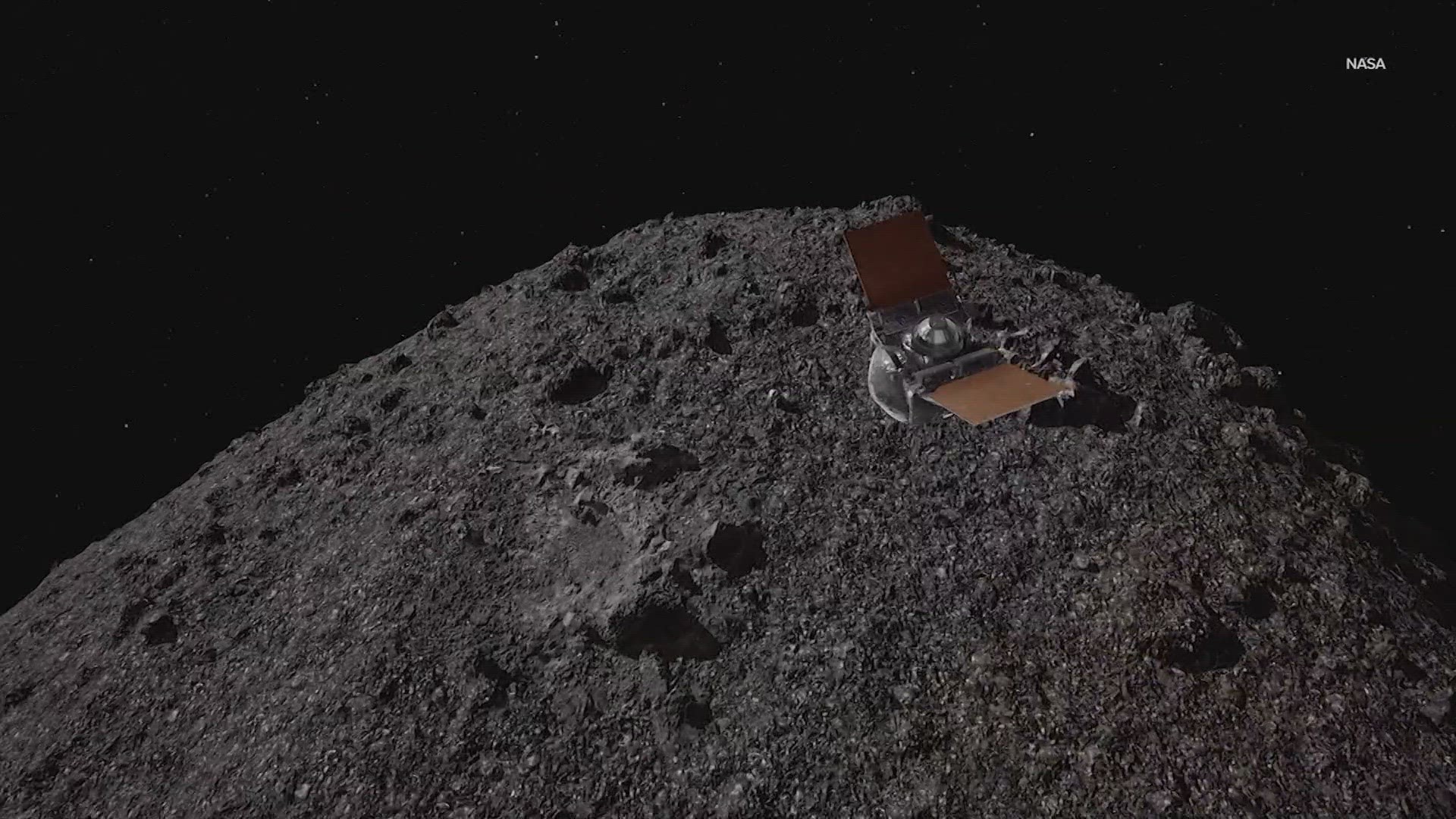HOUSTON — A first of its kind mission for NASA delivered a rare, cosmic gift.
Seven years ago, NASA's OSIRIS-REx spacecraft blasted off to an asteroid to collect a sample. And now, that sample is making its way back to Earth.
"Bennu is a wonderful little object hurtling through the solar system," Noah Petro, a research scientist at the Goddard Space Flight Center in Maryland, said.
Petro said a pristine sample of the asteroid called Bennu will be dropped off in the Utah desert, then sent to the Johnson Space Center. It's the completion of a complicated mission.
"We had to effectively kiss the asteroid," he said. "We had this momentary touch as brief as possible to collect as much as we could and then get away."
NASA will stream the re-entry and landing of the asteroid Sunday morning and so will KHOU 11. Download our app and we'll send a push alert when the stream begins.
Petro says the sample, which is a mere 8.8 ounces, is an important get since asteroids are considered leftovers from the solar system's early days.
"As such, it retains a history going back four-and-a-half billion years," he said. "These samples will help us interpret and reinterpret the history of the solar system."
It will also provide insight into Bennu itself, which has a chance of colliding with Earth in the future.
Pedro says scientists want this sample studied under the best equipment so small amounts of the asteroid will be sent around the world, while Osiris-Rex continues its tour of the solar system to capture a detailed look at another asteroid.
"At this moment in time, we are at an inflection point in our understanding of the family tree that is our solar system, and by studying asteroids, by studying the moon and planets from Mercury to Pluto and beyond, we are able to to reinterpret what we think we know about how this solar system worked so that we can apply that to the solar systems that we're seeing across the universe."

